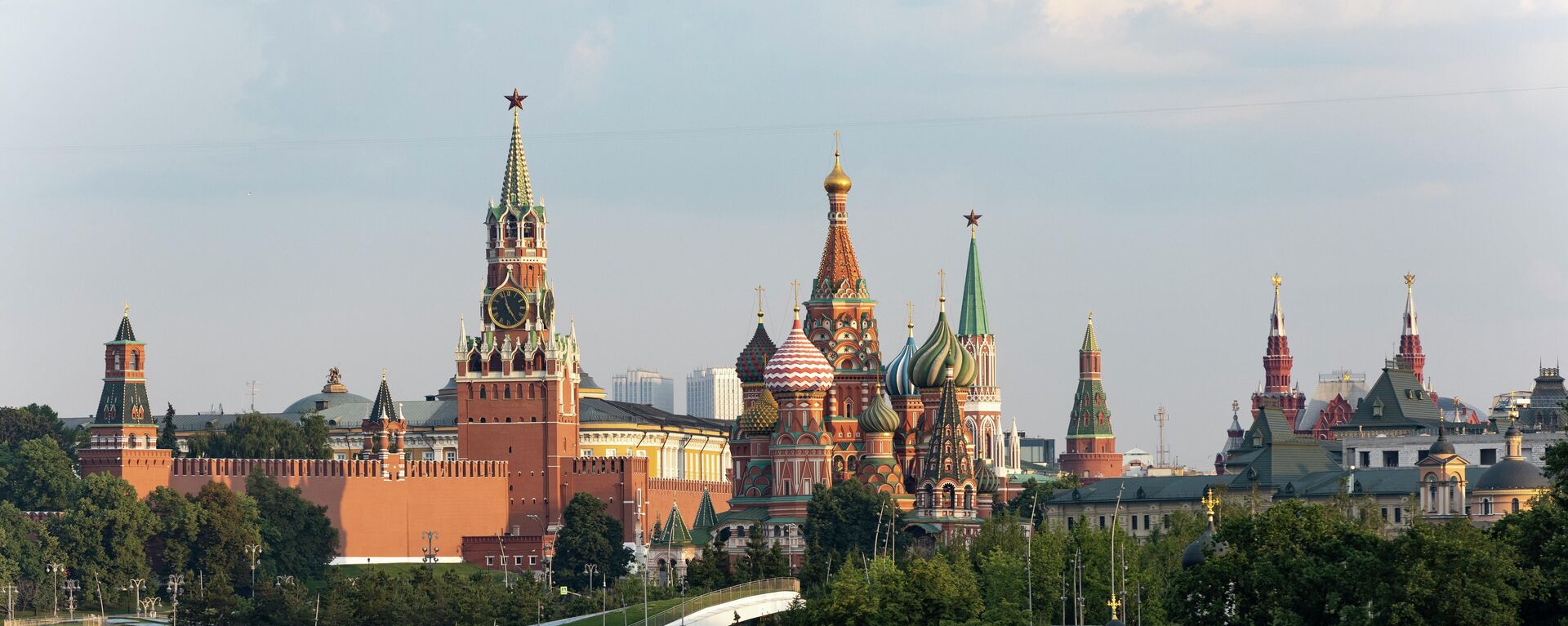https://sputnikglobe.com/20240112/remarkable-resilience-russian-economy-grows-despite-sanctions-becomes-worlds-top-5-1116124972.html
Remarkable Resilience: Russian Economy Grows Despite Sanctions, Becomes World’s Top 5
Remarkable Resilience: Russian Economy Grows Despite Sanctions, Becomes World’s Top 5
Sputnik International
Russia's growth by the end of 2023 is anticipated to exceed the forecasted 3.5%, as announced by President Vladimir Putin. This milestone positioning it as Europe's largest economy and the fifth globally.
2024-01-12T02:13+0000
2024-01-12T02:13+0000
2024-01-12T19:41+0000
russia
russia
vladimir putin
tiberio graziani
russian economy under sanctions
economy
https://cdn1.img.sputnikglobe.com/img/07e7/08/08/1112467427_0:124:3201:1924_1920x0_80_0_0_8a954c4e64c99c864618a7a355237d3e.jpg
In a recent statement, Russian President Vladimir Putin revealed that the Russian economy's growth at the end of 2023 might surpass the projected 3.5%. This development is not just a numerical triumph but symbolizes Russia's significant leap in the global economic arena.Putin highlighted that Russia has now overtaken Germany, becoming the first in Europe and the fifth worldwide in terms of economic size.Tiberio Graziani, chairman at Vision & Global Trends - International Institute for Global Analyses, sheds light on this "Russian phenomenon," as the rise of Russia's economy amidst sanctions and global pressures raises questions about the effectiveness of such measures.Graziani explains that despite the sanctions, which began a decade ago due to the crisis between Ukraine and Russia, Russia's economy has shown remarkable resilience. "For ten years now, the Russian productive economic fabric has managed to withstand the shock wave of the sanctions," Graziani sated.Comparing Europe's economic struggles, Graziani points out that the European Union is still grappling with the aftermath of the 2007/2008 crisis, with the loss of energy resources from Moscow has significantly impacted the industrial sectors of energy-intensive countries.When asked if this could be termed a "Russian phenomenon," Graziani responded by suggesting the resilience and results achieved by Russia deserve in-depth analysis. Factors such as societal cohesion, elite-society relationships, and Russia's expansive geography play a crucial role. Additionally, Russia's economic strategies within the BRICS and the global South are pivotal elements contributing to this phenomenon.As Russia continues to defy expectations and economic predictions, the global community watches keenly. This turn of events not only alters the landscape of international economics but also serves as a case study for the effectiveness of sanctions and the untapped potentials of economic resilience and strategic planning.
https://sputnikglobe.com/20231119/russia-withstands-western-sanctions-aims-for-economic-growth-higher-than-3---kremlin-1115054940.html
russia
Sputnik International
feedback@sputniknews.com
+74956456601
MIA „Rossiya Segodnya“
2024
News
en_EN
Sputnik International
feedback@sputniknews.com
+74956456601
MIA „Rossiya Segodnya“
Sputnik International
feedback@sputniknews.com
+74956456601
MIA „Rossiya Segodnya“
russia, russian economy, russian economy under sanctions, will russia face an economic collapse, future of russian economics, president vladimir putin, russia becomes top 5, russia is the largest economics in europe, what is the largest economy in europe, what country has the largest economy in europe
russia, russian economy, russian economy under sanctions, will russia face an economic collapse, future of russian economics, president vladimir putin, russia becomes top 5, russia is the largest economics in europe, what is the largest economy in europe, what country has the largest economy in europe
Remarkable Resilience: Russian Economy Grows Despite Sanctions, Becomes World’s Top 5
02:13 GMT 12.01.2024 (Updated: 19:41 GMT 12.01.2024) This development comes amidst ongoing sanctions and international pressures, challenging the traditional views on the effectiveness of such economic constraints.
In a recent statement, Russian President Vladimir Putin revealed that the Russian economy's growth at the end of 2023 might surpass the projected 3.5%. This development is not just a numerical triumph but symbolizes Russia's significant leap in the global economic arena.
Putin highlighted that Russia has now overtaken Germany, becoming
the first in Europe and the fifth worldwide in terms of economic size.
"In purchasing power parity, we have overtaken all of Europe, but per capita - we still have to try harder," Putin noted, emphasizing the remarkable nature of this achievement, especially given the backdrop of Russia facing stringent sanctions and international pressure. "This is an amazing result," Putin added.
Tiberio Graziani, chairman at Vision & Global Trends - International Institute for Global Analyses, sheds light on this "Russian phenomenon," as the rise of Russia's economy
amidst sanctions and global pressures raises questions about the effectiveness of such measures.
Graziani explains that despite the sanctions, which began a decade ago due to the crisis between Ukraine and Russia, Russia's economy has shown remarkable resilience. "For ten years now, the Russian productive economic fabric has managed to withstand the shock wave of the sanctions," Graziani sated.

19 November 2023, 10:27 GMT
Comparing Europe's economic struggles, Graziani points out that the European Union is still grappling with the aftermath of the 2007/2008 crisis, with the loss of energy resources from Moscow has significantly impacted the industrial sectors of energy-intensive countries.
"The EU has never overcome that now distant crisis. Added to this difficulty of the EU in overcoming the great crisis of about 17 years ago was the degradation of the economic-productive fabrics of Germany and Italy - the two main manufacturing countries of the EU," said Graziani.
When asked if this could be termed a "Russian phenomenon," Graziani responded by suggesting the resilience and results achieved by Russia deserve in-depth analysis. Factors such as societal cohesion, elite-society relationships, and Russia's expansive geography play a crucial role. Additionally, Russia's economic strategies within the BRICS and the global South are pivotal elements contributing to this phenomenon.
As Russia continues to defy expectations and economic predictions, the global community watches keenly. This turn of events not only alters the landscape of international economics but also serves as a case study for the effectiveness of sanctions and the untapped potentials of economic resilience and strategic planning.



